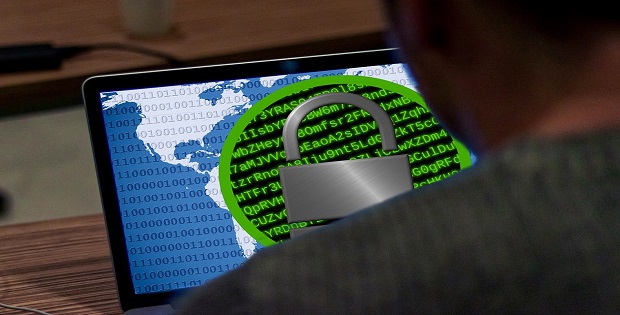Types of Trojans Viruses: Removal Tips
Last Updated on 2 months by Touhid
Trojan viruses disguised as legitimate software. An attacker uses a social engineering method to deliver the Trojan Horse Virus to gain unauthorized access. In this post, today we’ll define “What is a Trojan Virus and Types of Trojans Viruses”.
So, keep reading the article to learn more about Trojan viruses.
Table of Contents
What is a Trojan Virus?
A Trojan horse or Trojan Virus is a malicious code or program that is disguised as legitimate software to gain access to the victim’s systems. Trojan viruses are designed to delete, modify, damage, block, or do some other harmful action on your data or network.
Trojan viruses can capture sensitive and confidential data and send it to an external address for malicious activities. Even it can allow an intruder to give remote access to a computer.
A Trojan Virus can infect a phone to hack passwords and banking information.
Now, the question is: Can Trojan viruses be removed? Yes, if you know which software or application is infected by malware, just uninstall it. In addition, it is better to install antivirus software in order to detect and remove Trojan viruses from your device.
There are different Types of Trojan Viruses, which will be discussed in the next section.
Types of Trojans Viruses
Trojan viruses are classified according to the type of actions and what they can perform on your computer. In this section, we will discuss the most common types of Trojans viruses that can impact your device.

Backdoor Trojan
Backdoor is a popular type of Trojan virus that creates a backdoor to allow cyber attackers to remote access your computer system. This type of virus can do everything in your system such as sending, receiving, deleting files, and also rebooting the system.
Backdoor is a malicious program used by an attacker to unauthorized remote access a computer system by exploiting system flaws and vulnerabilities. It works in the background and hides from the user, and it is very difficult to detect.
Expert Tips
- Install anti-virus software on the computer and update.
- Disconnect your computer from the Internet.
- Reboot the computer.
- Full scan your system using antivirus software.
- Perform a System Restore
- Reconnect your computer to the Internet.
Rootkit Trojan
A rootkit is a malicious program that installs and executes code on a system without user consent to gain system access to a computer or network. It is typically installed by exploiting system vulnerabilities, social engineering tactics, and stolen passwords or phishing techniques without the victim’s knowledge.
There are different types of Rootkit viruses such as Bootkits, Firmware Rootkits, and Kernel-Level Rootkits.
Expert Tips
- It is very difficult to detect and remove rootkit malware because the developers attempt to hide their malware script from users and administrators of the system.
- Some rootkit malware can be detected and removed using anti-malware, and some types of rootkit malware are difficult to detect and remove from the device.
- If it is not possible to detect and remove the rootkit then reinstall the Operating System (OS), which will eliminate the malware from your device.
Downloader Trojan Virus
Downloader is a type of Trojan virus that that downloads and installs/executes one or more malicious programs from the internet including Trojans and adware.
Its main purpose is to download additional content from the internet such as additional pieces of malware and install this malware onto the compromised computer.
It is harmful malware to the security of your personal or business information such as credit card numbers, account passwords, or important data and other financial data.
Ransomware
Ransomware is a type of cybercrime that blocks to access the computer system and demands Bitcoin to access the system. The most dangerous ransomware attacks are WannaCry, Petya, Cerber, Locky CryptoLocker, etc.
It is typically installed in a computer in the following ways:
- When downloading and opening a malicious email attachment.
- Install an infected software or application.
- User visits a vulnerable website.
- Click on a suspicious web link or image icon.
Learn more about How to detect Ransomware on a Computer?
Banker Trojan
Banker is a type of malware program which are designed to steal your financial data such as online banking systems, e-payment systems, and credit or debit cards. Then this stolen data is transmitted over email, FTP, the web, or other methods to the malicious user controlling the Trojan.
It can appear as a legitimate piece of software until it is installed on a computer. Once installed, then the Trojan horse can gain access to the computer system and steal important files and information.
Denial-of-Service (DoS) attack
A Denial-of-Service is an attack that shuts down a machine or network and makes it inaccessible to the users. It typically floods a targeted system with requests until normal traffic is unable to be processed, resulting in a denial-of-service attack on users.
It occurs when an attacker prevents legitimate users from accessing specific resources, devices, or other network systems.
Learn more about Denial-of-Service Attack.
Exploit Trojan
Exploit is a type of Types of Trojans Viruses that contains malicious code or script to attack vulnerable software or applications. It is unknown security holes or vulnerabilities in a computer software or application in the software development process.
It is either the patch has not been released or the application developers were unaware of or did not have sufficient time to fix the vulnerability. They are classified according to the type of vulnerability, such as zero-day, DoS, spoofing, and Cross-Site Scripting (XSS).
However, if the developer does not solve the vulnerability, then it can impact computer programs, data, or a network. That’s why it is very important to always update your software and install security patches released by your software developer.
Mailfinder Trojan
Mailfinder is another type of Trojan viruses which are designed to collect email addresses from a victim’s computer and send them to the malicious user via email, web, FTP, or other methods.
Fake Antivirus (Fake AV)
Fake Antivirus is a malicious program that intentionally misrepresents the security status of a computer and behaves like antivirus software.
These malicious programs attempt to convince the victim to purchase the software to remove malware or security risks from the victim’s computer.
Some Fake Antivirus software is designed to disrupt the activities of the user until the software is purchased.
Spy Trojan Virus
Trojan-Spy is a software program used to spy on how you’re using your computer and what you are performing with the computer. Keylogger is a type of spying technology that records user keystrokes to steal passwords and other sensitive information.
It can track data entered by the keyboard, make screenshots, record instant messages, and emails, and capture any other information at any time using the keyboard. Keylogger software is installed on a computer system and can record every keystroke made on that system.
The information is then transmitted over email, FTP, the web, or other methods to the malicious user controlling the Trojan.

Infostealer Trojan
Infostealer is a Type of Trojan horse program that gathers confidential information such as login details, credentials, and financial information from the victim. Its main objective is to steal sensitive information from the infected computer.
Remote Access Trojan (RAT)
A remote access Trojan (RAT) is a malicious program used by the attacker to take complete control via a remote network connection. Its main purpose is to perform various malicious activities on the victim’s computer. Remote Access steals your sensitive information or spying on your activities.
Some other types of Trojan viruses are as follows:
- Dropper Trojan
- Clicker Trojan
- Notifier Trojan
- Proxy Trojan
- SMS Trojan
- GameThief Trojan
Conclusion
Finally, Trojan viruses are designed to steal, delete, modify, damage, block, or do harmful actions on your computer. We have discussed different types of trojan viruses and how they can infect on your device. Hope the article will be helpful for you to learn about Trojan Viruses.
Affiliate Disclosure : Cyberthreatportal is a participant in the Amazon Services LLC Associates Program, an affiliate advertising program designed to provide a means for website owners to earn advertising fees by advertising and linking to amazon.com.





